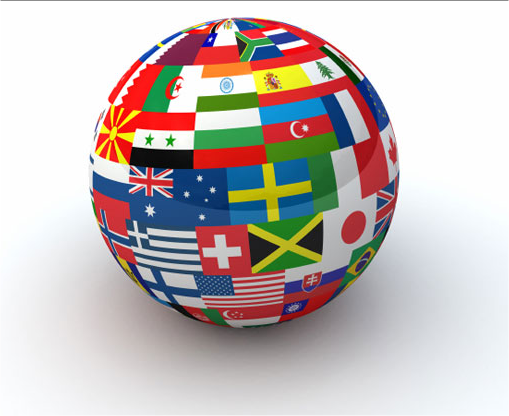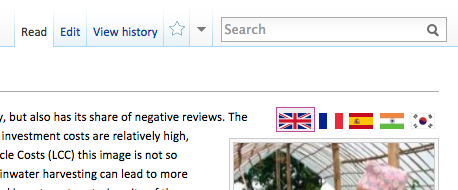Difference between revisions of "Translations"
| Line 3: | Line 3: | ||
<font size="3" color="#696969">We are pleased to announce that our new translations program has begun! </font> | <font size="3" color="#696969">We are pleased to announce that our new translations program has begun! </font> | ||
| + | <br> | ||
Our goal is to include major languages from all continents such as French, Spanish, Hindi, Swahili, and others... in addition to several less-used languages that our users might want, which include Indonesian, Chinese, Arabic, Malayalam, Tamil, Korean and Japanese. But we would like to add more languages as time goes on. | Our goal is to include major languages from all continents such as French, Spanish, Hindi, Swahili, and others... in addition to several less-used languages that our users might want, which include Indonesian, Chinese, Arabic, Malayalam, Tamil, Korean and Japanese. But we would like to add more languages as time goes on. | ||
While we accept individuals with translation experience (or students in a translation program) to add newly translated pages to Akvopedia, we have been fortunate to establish a translation program with some university programs worldwide. This way, their students get college credit for doing the translations, and Akvopedia gets pages that have been proofread by not just another individual, but by a team of aspiring translators, improving the quality of translation. In addition, the universities continue to offer their courses each year, which means we get consistent help, and notifications if an English page is updated and needs that integrated into the translated versions too. | While we accept individuals with translation experience (or students in a translation program) to add newly translated pages to Akvopedia, we have been fortunate to establish a translation program with some university programs worldwide. This way, their students get college credit for doing the translations, and Akvopedia gets pages that have been proofread by not just another individual, but by a team of aspiring translators, improving the quality of translation. In addition, the universities continue to offer their courses each year, which means we get consistent help, and notifications if an English page is updated and needs that integrated into the translated versions too. | ||
| + | <br> | ||
Currently you can find access to our translated pages by looking in the upper right corner of a page to see if there are language flag there. | Currently you can find access to our translated pages by looking in the upper right corner of a page to see if there are language flag there. | ||
[[Image:flag demo.png|thumb|none|500px|The upper right corner of an Akvopedia page]] | [[Image:flag demo.png|thumb|none|500px|The upper right corner of an Akvopedia page]] | ||
Revision as of 21:51, 24 September 2014

We are pleased to announce that our new translations program has begun!
Our goal is to include major languages from all continents such as French, Spanish, Hindi, Swahili, and others... in addition to several less-used languages that our users might want, which include Indonesian, Chinese, Arabic, Malayalam, Tamil, Korean and Japanese. But we would like to add more languages as time goes on.
While we accept individuals with translation experience (or students in a translation program) to add newly translated pages to Akvopedia, we have been fortunate to establish a translation program with some university programs worldwide. This way, their students get college credit for doing the translations, and Akvopedia gets pages that have been proofread by not just another individual, but by a team of aspiring translators, improving the quality of translation. In addition, the universities continue to offer their courses each year, which means we get consistent help, and notifications if an English page is updated and needs that integrated into the translated versions too.
Currently you can find access to our translated pages by looking in the upper right corner of a page to see if there are language flag there.

